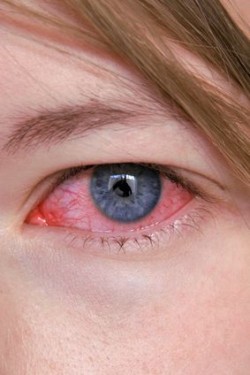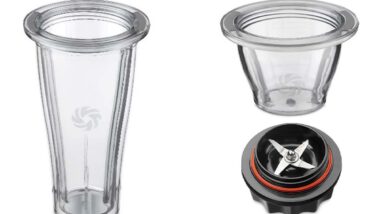Top Class Actions’s website and social media posts use affiliate links. If you make a purchase using such links, we may receive a commission, but it will not result in any additional charges to you. Please review our Affiliate Link Disclosure for more information.

Uveitis is an inflammation of the uvea, or uveal tract, which is the pigmented middle layer in the three layers of tissue that make up the eye. The uveal tract includes the iris, ciliary body, and chorid. Typical symptoms of uveitis are pain in the eye, redness, discomfort with exposure to light, floaters, and loss of vision.
With posterior uveitis, detachment of the retina is a risk. Uveitis is dangerous: it can lead to longer-lasting eye complications such as glaucoma, cataracts, swelling of the macula, and retinal damage. It’s possible that uveitis can also lead to blindness.
Uveitis treatment usually requires some combination of corticosteroids with other drugs that dilate the pupils. In more difficult cases, surgery may be necessary.
Causes of uveitis include many kinds of conditions, such as inflammatory conditions, infections, or eye injuries. It is also a known side effect of certain drugs.
Avelox, Cipro and Uveitis
A recent study published in JAMA Ophthalmology found an increased risk of uveitis associated with certain antibiotics. The study looked at the effects of three drugs in particular: moxifloxacin (Avelox), levofloxacin (Levaquin), and ciprofloxacin (Cipro). All three of these drugs are in a class of antibiotics known as fluoroquinolones, or quinolones. Quinolones are some of the most commonly prescribed antibiotics in the United States.
The researchers looked at the medical history from January 2001 to December 2011 of over 13,000 men who had had uveitis, comparing those histories to those of over 130,000 similar men who had not been diagnosed with uveitis. They found a significant increase in likelihood of developing uveitis in first-time users of moxifloxacin and ciprofloxacin.
Moxifloxacin first-time users were almost three times as likely to develop uveitis, while ciprofloxacin first-time users were almost two times as likely. Repeat users of these drugs also showed an increased risk of uveitis, but the increase was not as great. (With levofloxacin, the researchers found a trend of increased risk but determined that trend was not statistically significant.)
The researchers state these results are consistent with recent case reports that suggest a link between oral moxifloxacin and uveitis. They recommend that clinicians be made aware of the increased risk of uveitis with use of moxifloxacin or ciprofloxacin.
This link between certain antibiotics and uveitis is a relatively recent discovery. The study’s report states that to the researcher’s knowledge, this is the first study to explore that relationship.
Attorneys investigating this issue are interested in hearing from patients with uveitis that could be related to quinolone use. Uveitis can lead to pain, injury, increased medical bills, and lost time at work, all of which may lead to compensation. If you were diagnosed with uveitis after taking Avelox or Cipro, it’s possible you may have a legal claim.
Do YOU have a legal claim? Fill out the form on this page now for a free, immediate, and confidential case evaluation. The attorneys who work with Top Class Actions will contact you if you qualify to let you know if an individual lawsuit or class action lawsuit is best for you. [In general, antibiotic injury lawsuits are filed individually by each plaintiff and are not class actions.] Hurry — statutes of limitations may apply.
ATTORNEY ADVERTISING
Top Class Actions is a Proud Member of the American Bar Association
LEGAL INFORMATION IS NOT LEGAL ADVICE
Top Class Actions Legal Statement
©2008 – 2024 Top Class Actions® LLC
Various Trademarks held by their respective owners
This website is not intended for viewing or usage by European Union citizens.
Get Help – It’s Free
Join a Free Fluoroquinolone Antibiotic Class Action Lawsuit Investigation
If you took Cipro, Levaquin, Avelox, Noroxin or Factive and were diagnosed with an eye injury or nerve damage, you may have a legal claim. Submit your information now for a free case evaluation.
An attorney will contact you if you qualify to discuss the details of your potential case at no charge to you.
Oops! We could not locate your form.












